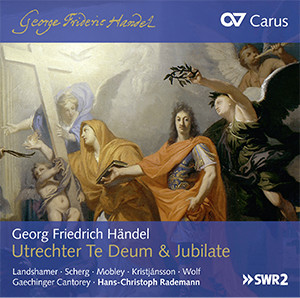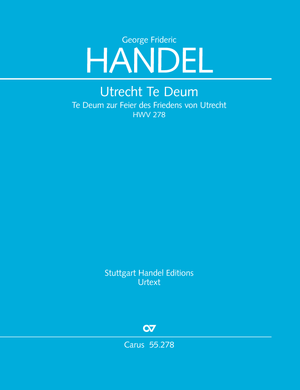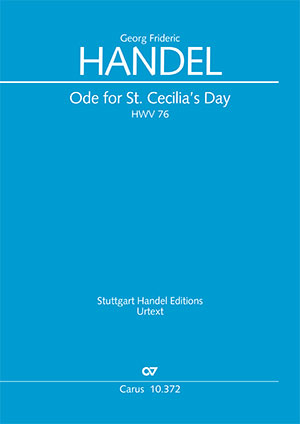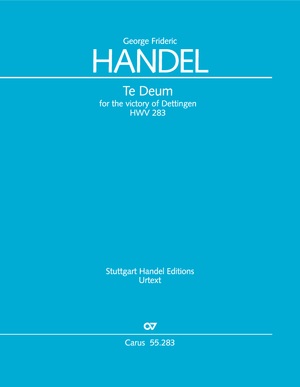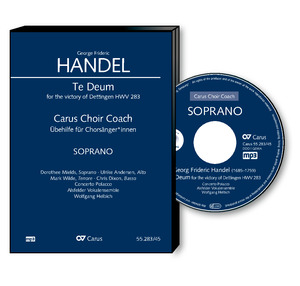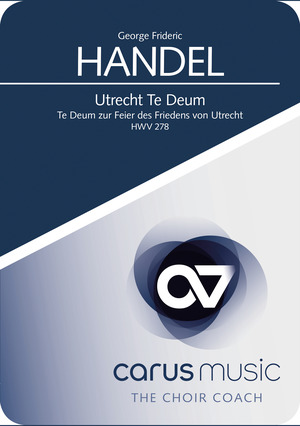
Dès sa première représentation, l’Utrechter Te Deum HWV 278 de Händel suscite l’enthousiasme des auditeurs londoniens, et aujourd’hui encore celui des salles de concert et églises du monde entier. Il est joué pour la première fois pour célébrer la paix établie en 1713 après douze années de Guerre de Succession d’Espagne. Le Te Deum était la première commande de la cour d’Angleterre et a été une étape importante au début de la carrière londonienne de Haydn. L’œuvre lui rapporte une pension annuelle de la reine Anne et l’aide à s’établir comme compositeur de musique représentative de la maison royale anglaise.
Certains mouvements sont écrits pour solistes et chœurs en alternance, il faut donc être attentif aux entrées. La doxologie de la fin est écrite pour double chœur, de façon inhabituelle pour SST pour le chœur I et AATB pour le chœur II. Il faut être sûr de soi pour ne pas se faire entraîner par les "mauvais !
Il suffit de s'exercer. Partout. A tout moment.
Que ce soit à la maison sur votre tablette ou votre PC ou en déplacement sur votre smartphone : avec carus music, the Choir Coach, vous avez toujours vos œuvres chorales avec vous pour vous entraîner ! Avec l'application chorale de carus music, vous pouvez écouter votre partition ainsi qu'un enregistrement de première qualité sur n'importe quel appareil et vous entraîner facilement à votre propre partie de chœur avec un coach. Avec carus music, la préparation de vos concerts est facile, efficace et amusante à maîtriser !
Dans cette édition de l'application, la voix sélectionnée n'est pas renforcée par le piano, mais son volume est relevé par rapport au reste de l'enregistrement, afin d'être nettement entendue.
Interprètes: Christina Landshamer (soprano), Anja Scherg (soprano), Reginald Mobley (alto), Benedikt Kristjánsson (tenore), Andreas Wolf (basso) – Gaechinger Cantorey – Hans-Christoph Rademann
Sommaire
-
Compositeur
Georg Friedrich Händel
| 1685-1759George Frideric Handel put his exceptionally versatile compositional abilities to the test at an early age. After moving to London in 1712, where he was appointed Composer of Musick for His Majesty’s Chapel Royal in 1723, he wrote numerous masterpieces for the royal court as well as his major opere serie. For many years he enjoyed triumphant successes with his operas, which were sung by outstanding performers, with serenades, and later also with oratorios such as Saul and Israel in Egypt. Over the years Handel’s reputation grew far beyond the city where he worked; some of his choral works, particularly Messiah, have enjoyed a performance tradition which remains unbroken to this day, and are sung by choirs throughout the world. Plus d'information sur la personne
-
Éditeur
Felix Loy
| 1963
Questions fréquentes sur l'œuvre
 Il n'y a pas encore de questions et réponses concernant cette œuvre ou vous n'avez pas trouvé la réponse à votre question sur l'œuvre ? Cliquez ici et envoyez votre question spécifique à notre service clients.
Il n'y a pas encore de questions et réponses concernant cette œuvre ou vous n'avez pas trouvé la réponse à votre question sur l'œuvre ? Cliquez ici et envoyez votre question spécifique à notre service clients.


